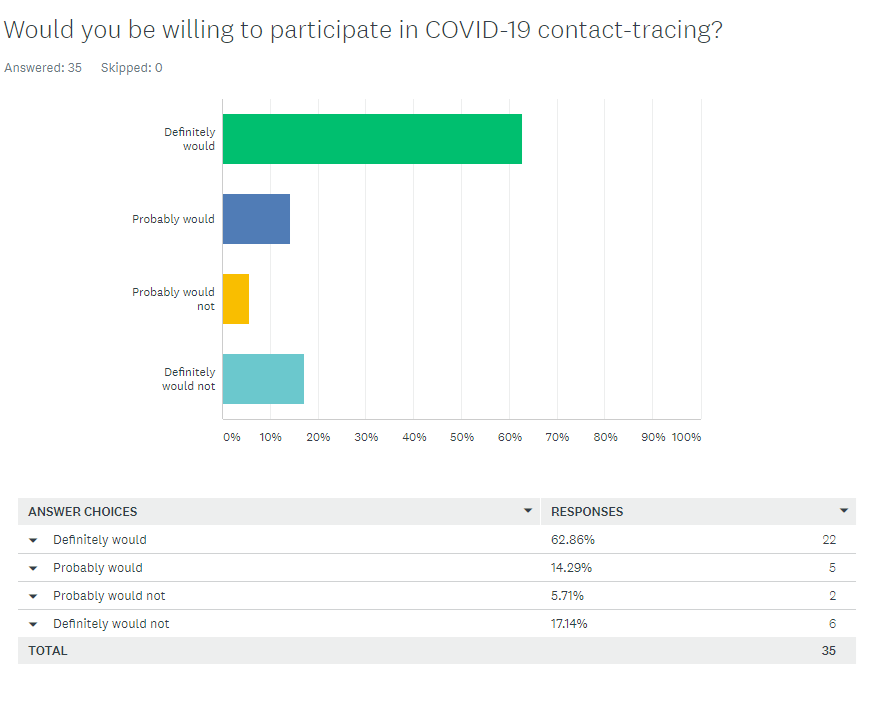Contact Tracing for COVID-19: Would You Participate?

The novel Coronavirus (COVID-19) has claimed the lives of many, greatly impacted economies, and shifted everyday norms for people across the world. In the U.S specifically, over 40 million Americans have filed for unemployment while on the other side, medical staff and healthcare providers’ employment has increased. One of the most unique challenges of COVID-19 is the level to which the virus is taken seriously in each population. In America, not only have the number of COVID cases increased significantly, but people have begun resuming their normal pre-corona activities, increasing the chances the virus will spread more rapidly. This has enforced the need to monitor and track those who have contracted the virus and inform and monitor those other individuals and places they have recently contacted. This action of monitoring and tracing COVID patients is called Contact-Tracing and was developed to accurately collect data about the number of cases and to inform the appropriate parties of any recent contact with a COVID carrier.
Although contact-tracing is a new and widely accepted data collection method, there are a few factors that have possibly contributed to people having varied feelings about participating in the study. Varying opinions from government officials, alarming new findings from leading virologists and scientists, changing mandates on public health safety precautions, and many other events have lead Americans to question the intentions or purpose of any new activity concerning the coronavirus. With questions and concerns like these, it is easy to get a mixed result of those willing and unwilling to participate in contact-tracing studies. However, despite consistent coronavirus chaos, in a recent study, about 62% of participants said they would participate and 17% said they would not. Other numbers reflect those who were not certain but even in that category, majority leaned toward yes. See the charts below:

